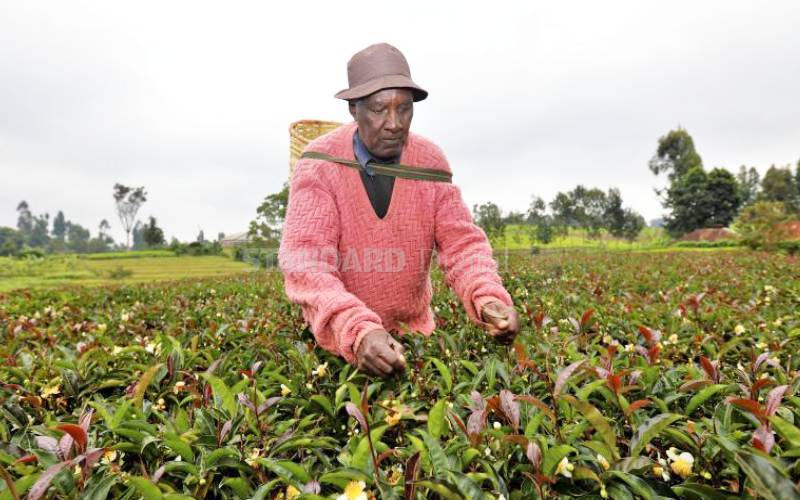×
The Standard e-Paper
Kenya’s Boldest Voice

Horera Tea Company founder Robert Murimi picks purple tea at his farm in Ragati, Mathira West. [Mose Sammy, Standard]
A State agency has licensed a producer in the county to process and export purple tea products.